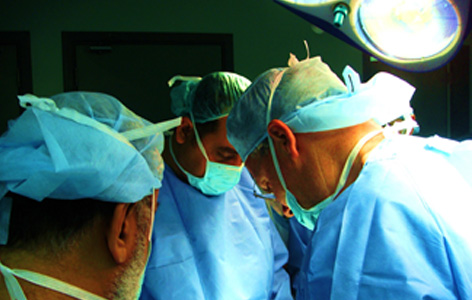
Because surgery is associated with inherent risk and potential harm to patients, risk has been examined in terms of system-wide factors as well as those based on factors relating to the personality and perspectives of surgeons. Yet, how individual surgeons negotiate risk, perceive it and make decisions to accept or reject risk, remains poorly understood. A study, led by PM Cancer Centre CCRU member and Wilson Centre Scientist Dr. Carol-anne Moulton and conducted by her student Nathan Zilbert, sheds light on this important subject.
The team conducted interviews to explore individual surgeons' perspectives on risk in the context of their comfort zones (when a surgeon is feeling competent and capable of managing the risk that is inherent to a case). These interviews revealed that when surgeons perceived cases to be at the boundary of their comfort zones, they adjusted their decision-making based on patient and environmental factors, and these often led to modifications of the environment with the goal of bringing the case back within their comfort zones. For example, in one case a surgeon who provided coverage at multiple hospitals described how she would only operate on patients at her base hospital, where she had access to the right team that could handle the procedure and optimize outcomes for the patient. By moving the patient to a hospital where she felt confident in the abilities of the surgical team, the surgeon was able to modify the environment so that she felt capable of managing the risk associated with the case.
"The comfort zone concept provides a framework for understanding how expertise and judgement develops for a surgeon in training," says Dr. Moulton. "This could help them better understand their own risk assessments when functioning independently in the teaching environment and ultimately when in practice."
This work was supported by a Studies in Medical Education Fellowship from the Royal College of Physicians and Surgeons of Canada (for NR Zilbert), and The Princess Margaret Cancer Foundation.
Taking a chance or playing it safe: reframing risk assessment within the surgeon's comfort zone. Zilbert NR, Murnaghan ML, Gallinger S, Regehr G and Moulton C-A. Annals of Surgery. 2015 Aug. [Pubmed abstract]




